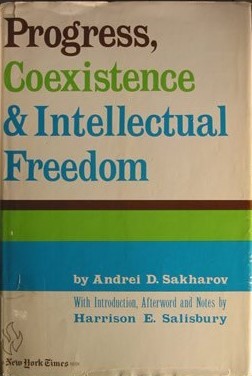I think that if one writes on socio-political issues one should fill at least one of three roles: an inspiration, a prophet or a deep-analyst. Sakharov meets none of the three in this book. He takes a pretty universal ethical stance (who isn't anti-hunger?) and what he says has said before and been said better.
This book is a little dated too. Should the USSR and USA collaborate... maybe next time, Reds.
The edition I read features a positive response from Henry Kissinger. I can only assume it was included as a joke.

